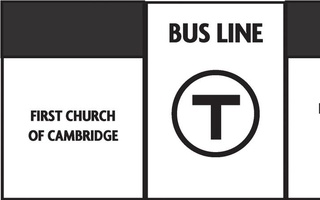University President Drew G. Faust signed the “Cambridge Community Compact for a Sustainable Future” on Monday in an official gesture of Harvard’s commitment to working with other public and private institutions to address the threat of climate change in Cambridge.
A Monday morning signing ceremony in MIT’s Barton Auditorium marked the end of more than a year’s work on the agreement, whose other signatories include MIT President L. Rafael Reif, Cambridge Mayor Henrietta J. Davis, and City Manager Robert W. Healy.
“We have much to gain from continuing to work together to confront climate change,” Faust said, according to the Harvard Gazette. “And I hope other leaders across the city are inspired to join us—and our partners in the private sector—in creating a healthier and more sustainable Cambridge.”
The four-page document outlines a number of steps that leaders at Harvard and MIT have already initiated to harness Cambridge’s intellectual capacity and high-tech private sector in the service of furthering local sustainability projects. For example, University representatives will sit on a number of Cambridge committees, such as the Cambridge Climate Protection Action Committee and the Green Building/Zoning Task Force. Harvard and MIT will also help to expand the Hubway bike-sharing program and create more green spaces and farmers’ markets in the city.
“The Community Compact is a living and voluntary document that will evolve over time to maximize local impact and enhance the sharing of ideas and solutions beyond Cambridge, and will be used to invite stakeholders throughout Cambridge to participate in building a better future together,” the compact states.
The agreement establishes a steering committee of representatives for each of the signatories, who will meet four times a year to coordinate projects and compile an annual progress report for the community.
Davis announced at the signing ceremony that the partnership has already garnered the support of several businesses, including Internet content delivery company Akamai Technologies, Novartis Institutes for BioMedical Research, and Whole Foods.
Harvard spokesperson for sustainability Colin B. Durrant said that connecting the public and private sectors is a particularly important feature of the compact. A potential collaboration, for example, might partner Harvard with Akamai Technologies to develop environmentally friendly information technology services, Durrant said.
—Staff writer Samuel Y. Weinstock can be reached sweinstock@college.harvard.edu. Follow him on Twitter @syweinstock.
Read more in News
Professors Extend Academia Into the TwittersphereRecommended Articles
-
No Murders Occur in Cambridge in 2010The Cambridge Police Department reported that last year saw no murders in the city, just the fourth time in the past 50 years that no murders have occurred in Cambridge.
-
Harvard Professor Reaches Settlement With Police in Discrimination CaseA Harvard professor has reached a settlement with the Cambridge Police Department in a civil federal discrimination suit that alleged he had been wrongfully detained by police after an alleged domestic dispute.
-
 Deal Making
Deal Making -
Cambridge City Council Candidate: Larry WardLarry Ward would like to involve the Harvard community in many of the ideas he hopes implement should he return to the Cambridge City Council after the November election.
-
Cambridge City Council Candidate: Gary C. MelloWhile many Cambridge City Council candidates note that they have ties with Harvard, Gary W. Mello is likely the only one who has ever lived in the Harvard Sailing Center.
-
HUPD Annual Report Indicates Doubling of Confidentially Reported RapesThe number of confidential reports of rape at Harvard University almost doubled from 12 in 2011 to 23 in 2012, according to the annual crime report released by the Harvard University Police Department.













